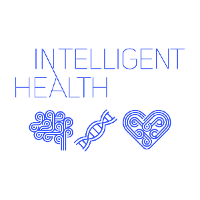We sat down with Panos Karelis, Director of Customer Experience and Insights at Intelligencia AI to ask him his thoughts on the future of AI in healthcare.
Do you think the increased usage of Generative AI and LLMs will have a dramatic impact on the healthcare industry and, if so, how?
Even though they are in their infancy, generative AI and large language models (LLMs) have already significantly impacted the healthcare industry and will continue to mature.
Gen AI interactions mimic how humans converse with each other. We naturally ask questions or describe tasks to others in complete sentences, providing some context rather than relying on keyword searches to generate the information needed. Communicating with an LLM makes the experience feel much more personal than, for example, querying a database using code.
For now, I see Gen AI as a “killer app,” making it easier for people to find and compile information. In healthcare, this can add significant value to researchers looking for specific data and help with more administrative, time-consuming tasks. Gen AI can also help you curate and interpret information in charts, tables or other visuals.
Some of the most interesting and practical use cases for Gen AI I’ve heard from our pharmaceutical customers include information compilation for drug labeling and document review. Research is an incredibly time-consuming and manual process, and if Gen AI can do some of the heavy lifting, it frees up time for other essential tasks.
With all of the excitement around Gen AI, we cannot forget that it doesn’t work flawlessly. The models hallucinate and makeup information, so we must be careful and can’t blindly trust the output. But still, starting with an imperfect AI-influenced draft is far better than a blank slate.
If you could solve any global health problem in the world with AI, what would it be?
Solving any global health issue is like bringing world peace. It’s a vast problem that no individual or single organization can solve alone. However, we can all focus our work on a distinct aspect and make a difference there.
At Intelligencia AI, we have taken up the challenge to de-risk drug development and inform more strategic decision-making by using AI. And this is a challenge that applies across the pharma industry and all therapeutic areas. Drug development is such a lengthy and costly process, and - if that wasn’t challenging enough - so many drug development programs have to be discontinued sometimes pretty late into the process after years and many millions have already been spent.
If we could identify the drug candidates that are most likely to succeed—meaning that they effectively treat disease and are safe—early on in the process and focus on the “winners,” the whole development cycle would become more cost-efficient and faster. This would free up resources—talent and capital—that could then be re-deployed to other areas of unmet need and more promising drug development programs.
This resource-laden and high-risk process also bears significant societal implications as the cost cascades throughout the healthcare system. So, by leveraging AI to augment the current decision-making process and reduce the risk in drug development, we will reap enormous benefits for the whole healthcare system, especially patients.
What do you think will be the biggest impact of AI and tech in the healthcare sector in the next 5 years?
Where to even start? I don’t need any convincing that there will continue to be many high-impact AI applications – many of which we likely have yet to realize fully. Let’s look specifically at the pharmaceutical industry. Early in the drug development value chain, drug discovery has great potential. AI can help accelerate discovery, make it more targeted, and open up new possibilities for treating diseases that are currently untreatable. AI in drug discovery is a significant application
it’s already happening to some extent, but it will need more years to mature. We’re still in the early stages of hype and many unknowns.
With the sheer amount of data out there, AI will continue to play an instrumental role in utilizing all the data we have generated. The last two decades were about data collection
the coming years will revolve around operationalizing insights from the data to make better decisions. When I say data, I mean data from various sources, from clinical trials to real-world data and from historical success rates to the performance of currently ongoing programs. The challenge lies in synthesizing and analyzing it, using it to make better decisions around essential tasks such as designing clinical trials, selecting the most promising drug candidates, or determining which indication space to enter. With all that data and AI’s capability to analyze it and augment industry experts, we can make a real breakthrough in the next five years.
At Intelligencia AI, we have developed solutions that help drug developers make better decisions and are already seeing success. It is incredibly gratifying to be part of that next chapter in drug development, which will have a monumental impact on the entire healthcare field and positively impact all of us as patients.
What's your biggest fear around the application of AI/tech in the healthcare field?
My fear doesn’t have to do with the technical prowess that AI requires but rather the fear that people may lose faith in it. This may happen because they either try immature solutions or don't have the patience to wait for the technology to mature and demonstrate its full potential and benefit. Right now, there are so many companies out there, so many claims, so much hype and so many buzzy headlines coupled with a whole lot of overpromising. This hype poses a real risk, particularly in healthcare, where people’s lives and health depend on the decisions made.
I recognize the risks associated with AI, such as privacy concerns, biases, hallucinations, etc., but those issues can and will be solved over time. Like any nascent technology, AI is neither good nor bad
it’s just new. That means we must continue improving it and invest in our processes and regulations, from collecting data to structuring and analyzing it.
It’s how people react to and deal with that new technology that remains unpredictable and gives me pause.
What two people do you admire most in the world of healthcare?
Instead of listing an individual or two, I’d like to point out two groups of people I admire.
First, I want to recognize clinicians (perhaps I have added affinity as my brother is one) and researchers for their commitment to treating and caring for patients and curing diseases. I have met many in my work, and they never cease to amaze me with their dedication to their patients, whether treating them directly or working on life-saving research.
The second group includes pharmaceutical executives who must make difficult decisions when allocating resources and prioritizing research. Imagine being forced to discontinue one of two drug development programs. Which one do you choose, knowing fully well that you may potentially (and unintentionally) eliminate a future treatment for people who urgently need it? Making these tough decisions isn’t optional
it’s part of the job. And in order to do the job well, it requires not only a solid decision-making framework with clear trade-offs and correct reasoning but also the right tools and technologies to support data-driven insights (cue AI).
So, to all those treating patients, researching the next breakthrough treatment and to those making risk-laden business decisions that positively impact healthcare – thank you.
Panos Karelis
Director of Customer Experience & Insights
Intelligencia AI

Global AI events calendar
World Summit AI
09-10 October 2024
Amsterdam, Netherlands
World Summit AI MENA
10-11 December 2024
Doha, Qatar
Doha, Qatar
Share your content with the Intelligent Health community
Got some interesting content you want to share with our community of AI and health Brains? You can send us anything from a published piece you have written online, white paper, article or interview. Submit it here


